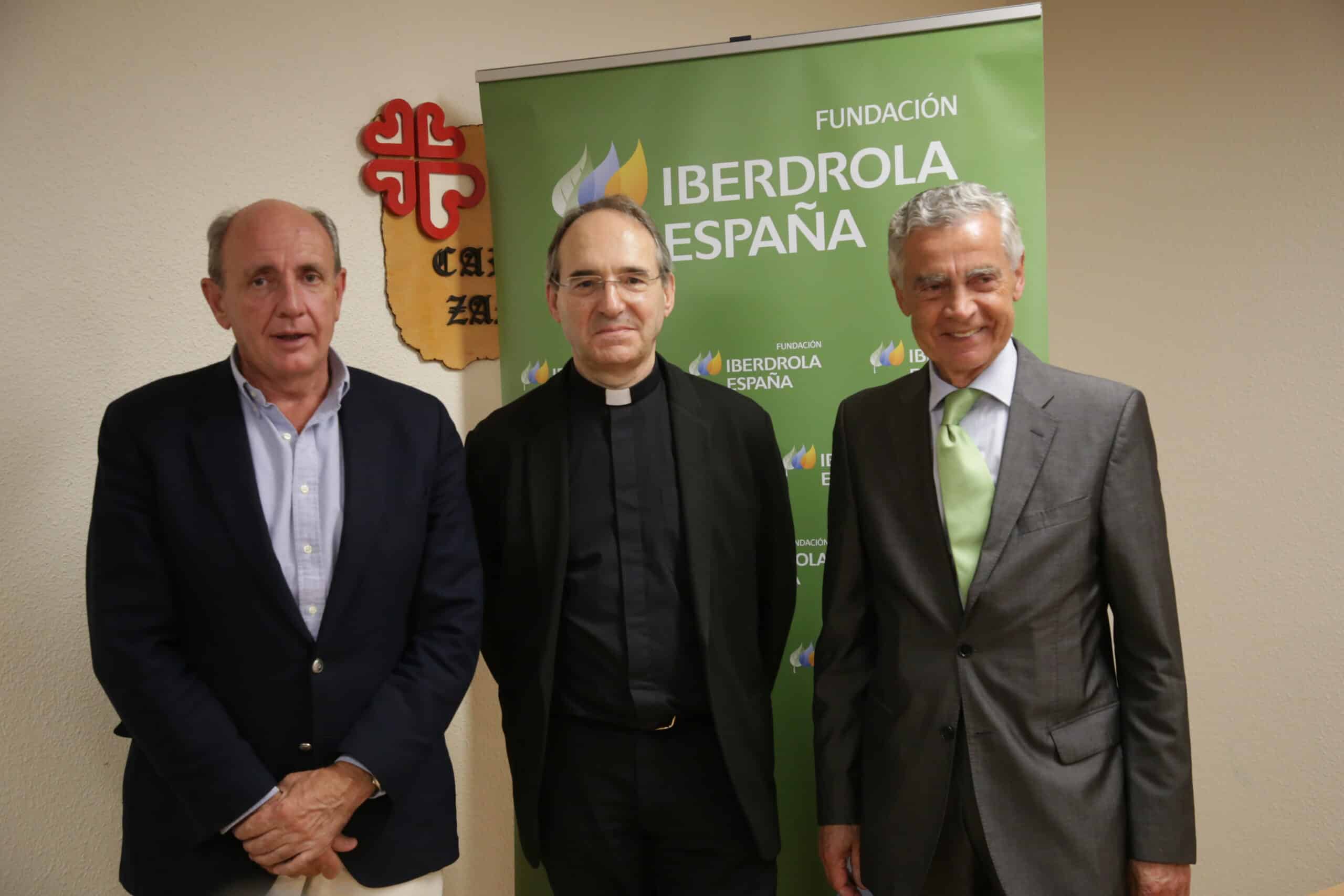Over 30 young people will be trained in renewable energies thanks to the Caritas Zamora project financed by Fundación Iberdrola España
A total of 18 young people aged between 16 and 30 years began on April 10 a training course in renewable energies for solar photovoltaic installations promoted by Caritas Diocese of Zamora, with the support of the Iberdrola Foundation, as part of its Social Program 2023.
The course, which will run until the end of next June, with 200 hours of training, “especially practical and with experienced teachers”, will have a second edition in September, with as many students.
“The budget is about 80,000 euros for the two editions of the course, counting the one in September. Fundación Iberdrola contributes 40,000 euros and the rest, with financing from its funds and another part, with some subsidy from a public entity,” said the director-delegate of Caritas Diocese of Zamora, Antonio Jesús Martín.
“Caritas has already had other collaborations with Iberdrola, although this is the first time in this area, presenting ourselves to a call for competitive bidding. It is important to highlight the collaboration between public administrations, private companies, and Cáritas. Anything that involves working together benefits us all as a society”, he stressed.
Martín de Lera made these statements at the headquarters of Cáritas Diocesana de Zamora, together with the president of Fundación Iberdrola España, Fernando García, and the director of Fundación Iberdrola España, Ramón Castresana. The event was also attended by Iberdrola’s delegate in Castilla y León, Miguel Calvo.
“Iberdrola selected in 2015 the sustainable development objectives as the elements that were going to flesh out the social dividend, to try to improve the living conditions of citizens,” said the president of Fundación Iberdrola, Fernando García. “Education and training, a basic element for equality; defense of the environment; art and culture, as an individual and social psychological and economic contractual element, and social action, with children, young people and women in critical or vulnerable situations. In this social action the Caritas collaboration is framed”, he enumerated.
After the presentation, the promoters of the project went to the facilities of Proyecto Hombre where the free courses on renewable energies for solar photovoltaic installations are being held.
For his part, the director of Fundación Iberdrola España, Ramón Castresana, stressed that “giving opportunities to young people” constitutes “a large part of the future development” of Spain. “There is being and there is going to be a lot of investment by all the companies. At Iberdrola, we demand well-trained young people and the experience in similar projects in other areas has a very important level of success,” he assured.
“We contribute to reducing a social problem, which is having a group of young people on the street, with nothing to do and no short-term future. We have achieved practical training, with a lot of time outdoors, and the young people feel more comfortable in this environment. The level of commitment we are seeing is very interesting and I predict that we are going to be very successful,” he predicted.

From left to right: The director of Fundación Iberdrola España, Ramón Castresana, the delegate-director of Cáritas, Antonio Jesús Martín, and the president of Fundación Iberdrola España, Fernando García
STEM
Concerning the fact that, of the 18 people taking the first course, there is not a single girl, Ramón Castresana emphasized the “need” to “educate society itself” to ensure that many more women study Vocational Training in the STEM world (Science, Technology Engineering and Maths).
“We are trying to promote programs with girls in primary and secondary school to explain to them that the STEM world is not only for men. We have many projects trying to raise awareness about a niche market that requires a lot of manpower and to demystify that it is only for men,” she insisted. “It’s practically all technology and can be handled by either a man or a woman,” he concluded.

